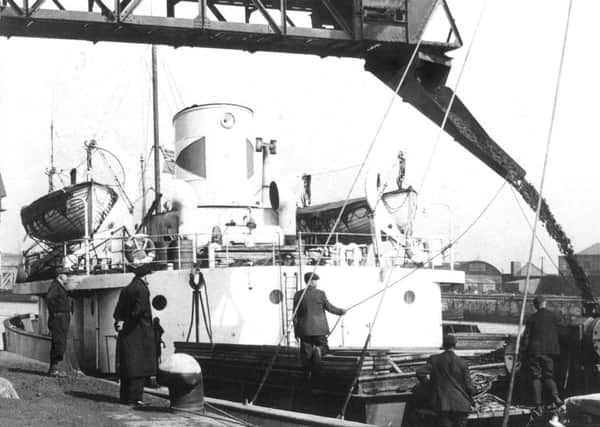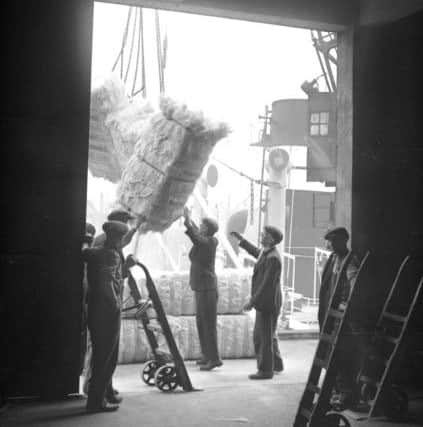German skipper's poignant words to the Echo - days before Second World War broke out


There was the German skipper who fondly sent a letter to his Wearside pals just before the Second World War, saying it could be some time before he saw them again. What happened to him? Read on.
In the days when Sunderland was the biggest shipbuilding town in the world, it was also a thriving port.


Advertisement
Hide AdAdvertisement
Hide AdAt one time a wide range of goods were exported and imported through the large network of docks, staithes and quays.
The archives of Sunderland Antiquarian Society and the files of Echo shipping correspondents provide a fascinating glimpse into a bustling port before and after the Second World War.
The last German ship into Sunderland before the outbreak of the Second World War had a captain who had been calling in the port for years.
In his cabin, only days before Germany invaded Poland, he told the shipping reporter that it would be a long time before he would be watching the coal going down the chutes into the hold of his ship.


Advertisement
Hide AdAdvertisement
Hide AdHe wrote his name and address on a slip of paper and said: “Write to me after the war.”
In 1946, in reply to a letter sent to Germany, the news was received at the Echo office that both master and ship were lost in the first year of the war.
It’s an example of the people behind the shipping, the workers who brought hustle, bustle and human interest stories to a once thriving industry.
Such as the time in the post war period when there was a report that the crew of a Communist ship in the Wear Dockyard was drilling on the deck.
Advertisement
Hide AdAdvertisement
Hide AdWhen the man from the Echo arrived to investigate, he found the seamen harmlessly chipping away the rust.
But it was differemt when the Batory, the Polish liner, was in the Wear.
A member of the crew left the ship and sought political asylum. And her seamen always went around in threes, with one trusty to each group.
Other Poles loved Sunderland as well.
At one time, the Polish fishing fleet was a regular visitor to Sunderland during herring season. The crews liked nothing better than to go on a spending spree in the town and it became commonplace to see them return to their cutters carrying rolls of linoleum, chairs and saucepans.
Advertisement
Hide AdAdvertisement
Hide AdBut just as interesting was the time before the Second World War.
In the 1930s the Tynehome, a former Q-ship of the First World War, brought cargoes from Rotterdam every week.
Q-ships were merchantmen that had concealed guns to lure U-boats into a trap. When the German submarine surfaced to dispatch what they believed to be an unarmed vessel, the crew of the Q-ship uncovered the guns and opened fire.
There was a regular service to the Corporation Quay from Gothenburg, and the Bruse took away Durham coal for the Swedish State Railways.
Advertisement
Hide AdAdvertisement
Hide AdCoal was the foundation of the port’s prosperity. Five million tons was shipped in the peak pre-war years and it went to every country in Europe and as far as South America.
But many other goods made this a port of note.
The Monsanto Chemical Company had a plant in Hendon Dock. It distilled crude tar into creosote, light oil and refined tar which was loaded straight on to steamers.
Esparto grass from North Africa – used in the papermaking process – went to Hendon Paper Mill and Ford Paper Mill.
Sisal arrived from East Africa for rope works such as British Ropes (Craven & Speeding) and Dawson & Usher.
Advertisement
Hide AdAdvertisement
Hide AdAnd Armstrong, Addison & Co imported timber for their saw mills in the North Dock. Even larger quantities of wood was landed in the South Docks for other Sunderland companies.
The Blackhall, Leadgate and other Consett Iron Company ships discharged ore from Bilbao. It left a residue of red dust around the dockside.